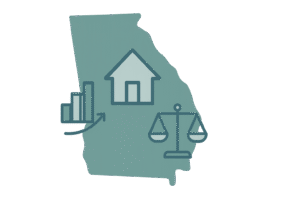How to Stop Property Tax Foreclosure: A Practical Guide
Are you looking for solutions for how to stop property tax foreclosure? It can be an overwhelming situation, leaving you uncertain about your future. But…

Are you looking for solutions for how to stop property tax foreclosure? It can be an overwhelming situation, leaving you uncertain about your future. But don’t worry! This all-inclusive guide is here to help! It will walk you through three effective methods to stop property tax foreclosure and protect one of your most valuable assets.
By following these steps, you can take back control of your financial situation and ensure the safety of your home.
Let’s get started!
What is Property Tax Foreclosure?
When property owners fail to pay their property taxes, a legal process called property tax foreclosure kicks in. It’s important to know that this unpaid tax debt can lead to severe consequences for the property owner.
So, here’s what happens:
First, the property owner gets a certified mail notice about the unpaid taxes and a chance to repay them within a specific timeframe (which varies depending on state law).
A tax lien certificate may be issued when delinquent taxes still go unpaid. This certificate acts as a claim against the property and allows the lien holder (usually the local government) to recover the unpaid taxes.
Sometimes, these tax liens are even sold to third-party purchasers who have the right to collect the debt, often with interest added. It’s a complicated process, but understanding it can help us navigate property taxes.
Things can get serious if the property owner refuses to pay their tax debt. A tax lien can end up leading to a property tax deed sale. This means the property might be sold off at a public auction to compensate for the unpaid taxes.
Usually, the property goes to the highest bidder, and the money from the sale is used to cover the overdue taxes, the costs of the foreclosure proceedings, and any related fees.
It is important to understand your rights when dealing with the potential consequences of unresolved tax debts.
Even after the property is sold, there’s still a chance for the original owner to reclaim it during the redemption period. This is a specific amount of time, defined by state law, where the owner can repay the sale price plus any applicable interest, known as the redemption price, to regain ownership.
Now, let’s talk about how the property tax foreclosure process can be halted or delayed. For example, if the property owner files for bankruptcy, the bankruptcy court can temporarily stop the foreclosure proceedings with an automatic stay. Another option is negotiating a payment plan with the tax collectors or applying for a hardship extension.
It’s also important to note that mortgage holders, like financial institutions or lenders, are usually informed about the foreclosure proceedings. They have a vested interest in the process, as a foreclosure could impact their ability to recoup mortgage payments.
Property tax foreclosure can significantly impact a property owner’s financial stability and creditworthiness. It’s a complex process with various legal rights and responsibilities. Understanding these complexities is crucial in finding solutions and minimizing the adverse effects of property tax foreclosure.
Why Should You Learn How to Stop Property Tax Foreclosure?
Here’s the deal: By taking care of your overdue taxes, you can avoid losing your family property in a tax foreclosure sale. It’s crucial to act fast and keep your property in your hands. Let’s make sure you stay in control!
Oh, and let’s not forget about your credit score! Avoiding issues related to foreclosure is super important for protecting your creditworthiness. By addressing those unpaid property taxes and dodging a tax lien foreclosure, you’ll be able to maintain a solid credit score and keep your access to top-tier financial opportunities.
It is crucial to keep your finances stable. Unpaid property taxes can take a toll on your overall financial situation. But don’t worry, by taking care of your tax debt, you can avoid extra costs and consequences like a tax sale. This way, you can safeguard your financial stability and stay on top.
To avoid losing your home, try these steps to stop a property tax foreclosure:
Step 1: Understand the Property Tax Foreclosure Process.
As a homeowner, it’s crucial to understand that when real property taxes are unpaid, tax collectors may initiate a tax lien sale to recoup the debt. This process can lead to a public auction where your property could be sold to the highest bidder.
Step 2: Familiarize Yourself with State Laws and Regulations.
Each state has its own laws regarding property tax foreclosure. It’s important to understand these laws, including the redemption period to reclaim your property after a sale and the minimum bid amount at the auction.
Step 3: Determine the Amount of Unpaid Taxes.
Find out how much you owe in back taxes. You can usually get this information from local tax or county treasurer offices.
Step 4: Explore Payment Options.
Look for ways to pay off your tax debt before the sale date. This could involve setting up a payment plan with your local tax office or securing a property tax loan.

Step 5: Conduct Due Diligence on Your Financial Situation.
Take a close look at your finances. Consider if there are areas where you can cut back or if there are assets you can sell to raise money to pay off your tax debt.
Step 6: Monitor the Foreclosure Process.
Keep a close eye on the foreclosure process. If your property is scheduled for a tax sale, you should receive a foreclosure notice in the mail.
Step 7: Consult with Professionals.
If you’re unable to settle your tax debt, consult with professionals such as a bankruptcy attorney or financial advisor. They can advise you on possible solutions like filing for bankruptcy, which could halt the foreclosure process through an automatic stay.
Step 8: Understand Your Rights.
If your property is sold at a tax sale, you may still have the right to reclaim it during the redemption period by paying the sale price plus interest, known as the redemption price.
Step 9: Address Any Additional Liens.
If your property has additional liens, like a mortgage, you must address these with the lien holder. This could involve negotiating a new payment plan or exploring other options with your mortgage lender.
Step 10: Stay Compliant with Legal Requirements.
Throughout this process, ensure you comply with all legal requirements. This includes promptly responding to any certified mail about the foreclosure and attending any required court proceedings.
Remember that this is just a general guide, and the nitty-gritty details might differ depending on your state and local laws. It’s always a good idea to dig deep and do thorough research, and don’t shy away from seeking professional advice tailored to your particular situation. You got this!

Key Considerations For Successfully Stopping Property Tax Foreclosure
If you’re dealing with a property tax foreclosure, don’t panic! There are steps you can take to stop the process. Let’s review some key things to remember and some additional measures you can take to protect your property.
1. Conduct a meticulous title search to ensure no additional liens or claims on the property. This step is crucial to avoid any surprises or complications during the process.
2. Gather all the necessary documentation and information to support your case. This may include property deeds, tax payment receipts, evidence of financial hardships, and any relevant legal documents.
3. It’s important to keep accurate and detailed communication records with taxing authorities, mortgage lenders, and legal professionals involved in foreclosure. This will help you stay organized and provide a comprehensive overview of the steps to resolve the issue.
4. Maintaining open lines of communication with all relevant parties is vital. Stay informed about any updates or changes in the foreclosure process, such as payment plans, negotiation options, or legal actions. Being proactive and responsive can significantly increase your chances of halting the foreclosure.
Taking it to the Next Level: How to Stop Property Tax Foreclosure Beyond the Basics
To further protect your property, consider these additional measures:
- Regularly review and update your property tax payments to avoid falling into arrears.
- Explore property tax appeal options if you believe your property’s assessed value is unfair or inaccurate.
- Seek professional financial advice to manage your finances better and ensure future property tax payments are made on time.
Alternatives to Stopping Property Tax Foreclosure
While the methods mentioned above can work wonders, exploring alternative approaches is important. Here are a few other options to consider:

1. Seek legal assistance.
If you’re facing a property tax foreclosure, you may be able to challenge it in court. In such a case, you would file a petition for certiorari, asking the court to review the lower court’s decision. Another option is to file a motion to dismiss, seeking to have the case thrown out. Consider a motion for summary judgment, asking the court to rule in your favor without a trial. Talk to a lawyer in your jurisdiction to understand your rights and explore your options.
Here are some additional things you can do:
- Check your local laws to see any deadlines or other requirements you need to meet to challenge a property tax foreclosure action.
- Gather evidence, such as tax records, appraisals, or other documents, to support your case.
- Be prepared to explain why you believe the property tax foreclosure action is unfair or incorrect.
- If you are unable to afford an attorney, you may be able to get help from a legal aid organization or a pro bono attorney.
2. Explore Bankruptcy Options.
Exploring bankruptcy proceedings can be a viable option for individuals seeking a temporary solution to halt property tax foreclosure. By leveraging the legal framework of bankruptcy, individuals can navigate the complex landscape of property tax foreclosure and potentially gain some breathing room to assess their financial situation and explore alternative avenues.
Although this approach should be thoroughly evaluated and tailored to individual circumstances, it can provide a crucial pause in the foreclosure process, allowing time to consider available options and potential resolution.

3. Seek Guidance from a Tax Consultant.
When dealing with tax-related matters, it can be beneficial to seek the assistance of a professional tax consultant or enrolled agent.
They will have the expertise and knowledge to effectively negotiate an installment plan with the government, ensuring that your financial obligations are met promptly while helping you navigate through the complexities of the process. By availing their services, you can gain peace of mind and confidently address any tax concerns that may arise.
4. Pursue assistance from a Government Organization or Non-Profit.
For assistance, consider contacting local charitable organizations, government-backed programs, and non-profit organizations in your area. These entities can provide valuable support and resources to individuals who need financial aid. Don’t hesitate to explore these options and connect with the right organizations that align with your circumstances. Remember, seeking help is a proactive step towards achieving financial stability and reaching your goals.
5. Seek a Deferment.
In some cases, depending on specific circumstances, it may be possible for individuals to seek exemptions or deferments of property taxes.
These options are typically available to individuals experiencing financial hardships or medical disabilities. It is highly recommended that individuals explore these avenues to alleviate the burden of property taxes in such challenging situations.
6. Consider Selling Your Home.
If you are facing property tax foreclosure, one option to consider is selling your home. By selling the property, you can obtain proceeds from the sale that can be used to pay off the tax lien or any other debts associated with the property.
However, it is crucial to remember that navigating these complex financial situations requires expert guidance.
Therefore, seeking assistance from a knowledgeable real estate professional or lawyer specializing in your jurisdiction is highly recommended. They can provide valuable insights and advice tailored to your specific circumstances, ensuring you make informed decisions.
Wrapping it Up
In conclusion, preventing property tax foreclosure requires taking proactive steps, communicating effectively, and understanding your rights and options. By diligently following the steps outlined in this comprehensive guide, you can navigate this challenging situation and safeguard your cherished home.
It is crucial to remember that seeking professional advice from an experienced real estate attorney is highly recommended.
With over 20 years of expertise in the real estate finance field, I have witnessed numerous success stories of individuals who could halt property tax foreclosure by diligently implementing these proven methods.
Now, it’s your turn to take control of your financial future and protect the valuable asset that matters the most to you and your loved ones.
By actively engaging in these necessary measures, you could be empowered to safeguard your home secure a favorable outcome.
The information provided in this article is for educational purposes only and not legal advice. Consult an attorney for personalized guidance. Utilize the outlined resources to become a knowledgeable property owner and confidently navigate legal matters. Research relevant state laws, review mortgage documents, or seek help from an experienced attorney in your jurisdiction to reduce foreclosure risks.





